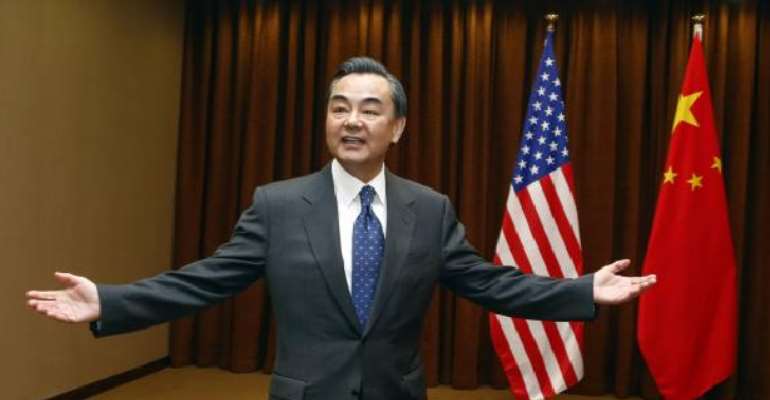China Pushes Back On North Korea, South China Sea As Kerry Visits

China's Foreign Ministry pushed back against U.
S.
pressure on North Korea and the disputed South China Sea on Friday, as U.
S.
Secretary of State John Kerry arrived in Beijing for high-level meetings.
Speaking in Seoul before leaving for Beijing, Kerry said on China should be doing more to help nudge Pyongyang - which has rattled the region with nuclear tests and angry rhetoric - into line.
Asked about that remark, Chinese Foreign Ministry spokeswoman Hua Chunying said China had been working hard to get North Korea to return to talks on its nuclear program, pointing out Chinese diplomats visited Pyongyang recently.
"China as a responsible, big country has been actively promoting and resolving the nuclear issue and has played its due role," Hua told a daily news briefing.
"We have, through different channels, worked on the North Korea nuclear problem through the six-party nuclear talks, and have maintained close communication with the parties.
" North Korea was raised during Kerry's meeting with Chinese President Xi Jinping, according to the official Xinhua news agency, with Xi "setting forth China's stance".
The report provided no other details.
The East and South China Seas are likely to feature prominently on Kerry's agenda too.
The United States has been increasingly uneasy at what it sees as China's effort to gain creeping control over waters in the Asia-Pacific region, including its November 23 declaration of an air defense identification zone (ADIZ) in an area of the East China Sea that includes islands at the centre of a dispute with Japan.
China also claims about 90 percent of the 3.
5 million square km (1.
35 million square miles) South China Sea, depicting what it sees as its area on maps with a so-called nine-dash line, looping far out over the sea from south China.
On Thursday, the commander of the U.
S.
Navy said the United States would come to the aid of the Philippines in the event of conflict with China over disputed waters in the South China Sea.
Hua said the United States should stick to its promises and not take sides in this dispute.
"The United States is not a party in the South China Sea dispute, and should .
.
.
be careful in its words and actions, and do more that will benefit true peace and stability in the region rather than the opposite," she said.
Brunei, Malaysia, the Philippines, Vietnam and Taiwan also have claims over the South China Sea, or at least parts of it.
Speaking in Washington on Thursday, a senior Philippine official urged the United States to exert more diplomatic, political and other measures to check China's expansion in the South China Sea.
"The seeming lack of a clear, perceivable and credible position on the part of the U.
S.
and other major international players makes China's assertive actions effective and undoubtedly boosts the pursuit of her interest," Vice Admiral Alexander Pama, a former navy chief, told a security forum, in comments released by the Philippine government.
REUTERS
